




In today’s fast-paced and busy world, it can be challenging to maintain a clean and organized living space. Clutter can quickly accumulate, and many individuals find themselves struggling to keep up with household tasks. But could this disarray in our homes be more than just a nuisance? Can a messy house actually contribute to depression and other mental health issues?
Research suggests that there may indeed be a link between clutter and our mental well-being. Living in a disorganized environment can lead to feelings of anxiety, stress, and overwhelm. When our surroundings are chaotic, it becomes difficult to relax and find a sense of calm. This constant visual reminder of the tasks that need to be done can weigh heavily on our minds, raising levels of cortisol, the stress hormone.
Not only can a cluttered home impact our mental health, but it can also affect our self-esteem and overall happiness. When our living space is in disarray, we may feel embarrassed or ashamed, especially when compared to the seemingly perfect homes we see on social media and in magazines. This constant comparison can erode our self-confidence and contribute to feelings of inadequacy.
Furthermore, a messy house can make it challenging to engage in self-care activities. When our physical environment is cluttered, it can be difficult to find the time and space to prioritize our own well-being. Clearing out the clutter and creating an organized living space can help create a sense of clarity, allowing us to focus on ourselves and our mental health.
“A clean house is a clean mind.”
Ultimately, the state of our home and our mental health are intertwined. Taking steps to declutter and create a calm and organized living space can have a significant positive impact on our overall well-being. So, the next time you find yourself feeling overwhelmed by the state of your home, remember that tidying up may do more than just create a pleasant environment; it could also lift your spirits and improve your mental health.
Understanding the Impact of Clutter on Mental Health
Clutter can have a significant impact on mental health and well-being. Research has shown that living in a messy and disorganized environment can contribute to the development of stress, anxiety, and even depression.
Increased Stress Levels
When a person is surrounded by clutter, it can cause an increase in stress levels. Cluttered spaces are often associated with feelings of overwhelm and being overwhelmed with the amount of stuff can lead to elevated stress levels. This can interfere with concentration, decision-making, and overall mental well-being.
Anxiety and Restlessness
Cluttered environments can also contribute to feelings of anxiety and restlessness. The visual chaos of clutter can create a sense of unease and make it difficult to relax and unwind. The constant reminder of unfinished tasks and disorganization can lead to a perpetual state of anxiety.
Reduced Productivity
Living in a cluttered space can also have a negative impact on productivity. When a room is cluttered, it can be challenging to find what you need, leading to wasted time and increased frustration. Additionally, clutter can serve as a distraction, making it difficult to focus on tasks at hand.
Impact on Self-Esteem
Clutter can also affect self-esteem and self-worth. Living in a messy environment can make individuals feel ashamed, embarrassed, or like they are failing in some way. This can contribute to feelings of low self-esteem and a negative self-image.
Promoting Healthy Habits
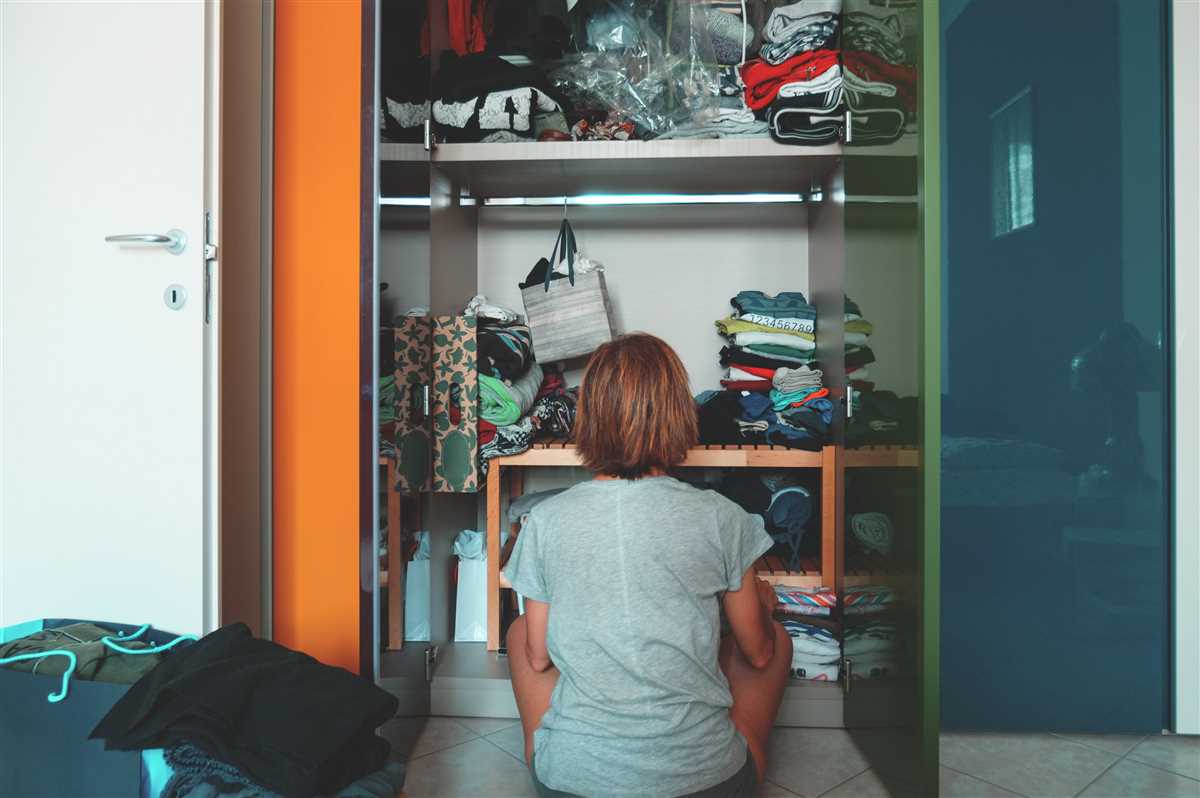
On the other hand, an organized and clutter-free space can have a positive impact on mental health. A clean and tidy environment can promote a sense of calmness, improve focus, and enhance overall well-being. Taking the time to declutter and organize can be a valuable step in promoting good mental health.
Conclusion
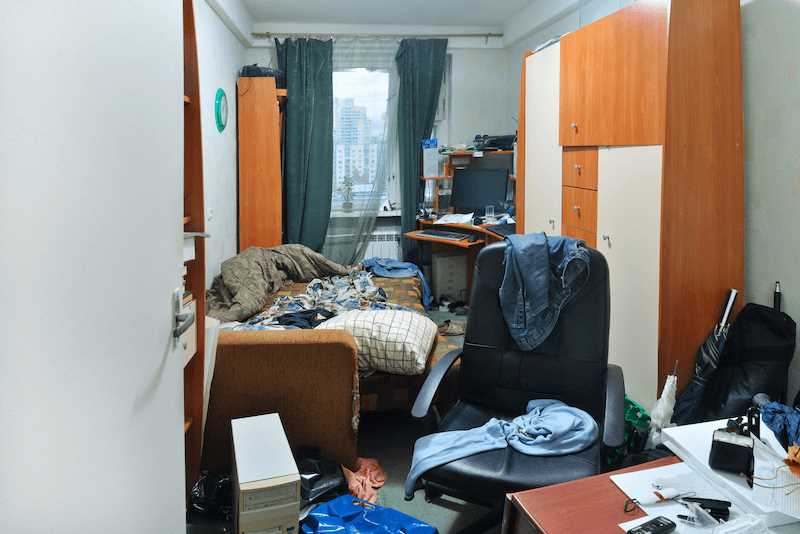
Understanding the impact of clutter on mental health is crucial. By recognizing the negative effects that clutter can have, individuals can make an effort to create a more organized and clutter-free environment. This simple step can greatly improve mental well-being and contribute to a healthier and happier life.
Can a Messy House Lead to Depression?
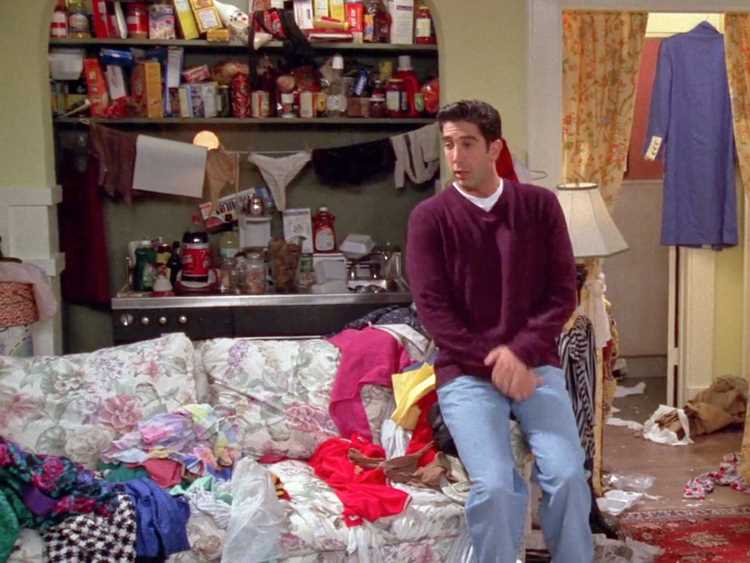
Living in a cluttered and messy house can have a significant impact on a person’s mental health. While there isn’t a direct causal relationship between a messy house and depression, studies have shown that the two are often linked.
The Effects of a Messy House on Mental Health
A cluttered environment can lead to feelings of overwhelm, stress, and anxiety. When a house is disorganized and chaotic, it can be challenging to focus and find peace of mind. The constant visual reminder of unfinished tasks and disorder can be mentally draining and contribute to a negative mood.
Researchers have found that prolonged exposure to a messy house can increase the production of cortisol, a stress hormone, in the body. High levels of cortisol can lead to feelings of chronic stress and, in some cases, contribute to the development of depressive symptoms.
The Link Between Clutter and Depression
A cluttered house can also hinder productivity and motivation. When the environment is disorganized, it becomes harder to find things, stay organized, and complete tasks efficiently. This can lead to a sense of helplessness and an increase in procrastination, which can contribute to feelings of depression.
In addition, a messy house can also affect social interactions. People may feel embarrassed or ashamed to invite others into their home, leading to social isolation. Lack of social connection is a known risk factor for depression.
Taking Steps Towards a Tidier Home and Better Mental Health
Whether clutter is a cause or a symptom of depression, taking steps to improve the tidiness of one’s home can have positive effects on mental health:
- Declutter: Start by getting rid of items that are no longer needed or bring joy. Adopting a minimalist mindset can help create a more organized and calming space.
- Establish routines: Set aside time each day or week for tidying up. Breaking tasks into smaller, manageable steps can make them feel more achievable.
- Seek support: Reach out to friends, family, or professionals for help and encouragement to create new habits and maintain a tidy living space.
By making an effort to create a more organized and clutter-free home, individuals can improve their mental well-being and reduce the risk of depression.
Conclusion
While a messy house may not directly cause depression, there is a clear link between clutter and negative mental health effects. Living in a disorganized environment can contribute to feelings of stress, anxiety, and overwhelm. Taking steps towards a tidier home can have a positive impact on mental well-being and potentially reduce the risk of depression.
The Connection Between Clutter and Anxiety
When it comes to mental health, anxiety is a common condition that affects millions of people worldwide. While there are many factors that can contribute to anxiety, one often overlooked factor is clutter. Research has shown that a cluttered environment can have a significant impact on a person’s anxiety levels.
1. Increased Stress Levels
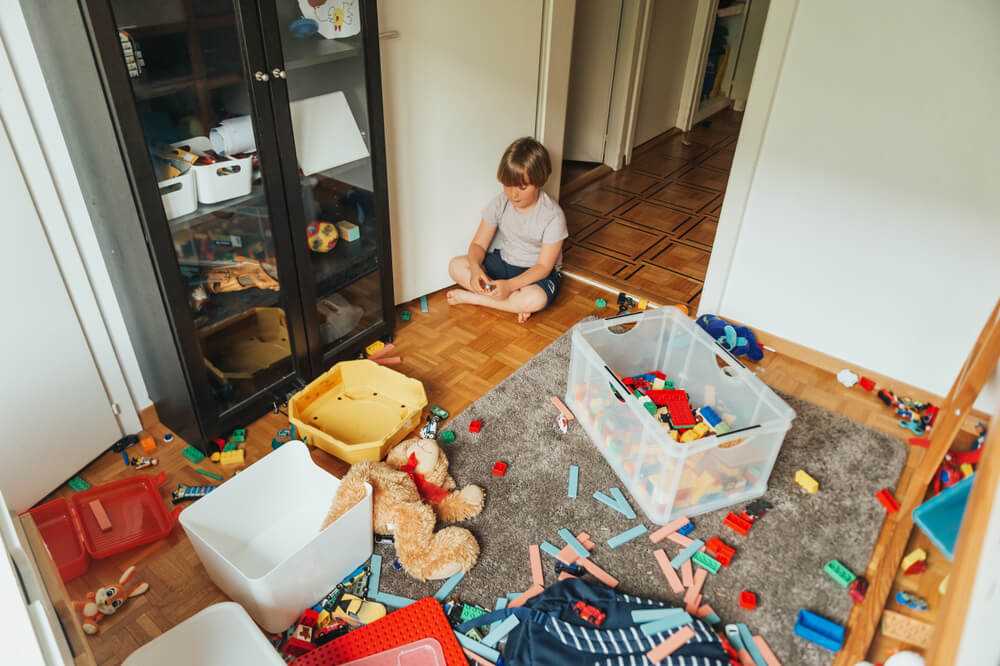
Living in a cluttered space can lead to increased stress levels. Studies have found that individuals who live in cluttered environments are more likely to experience higher cortisol levels, which is a hormone associated with stress. The constant visual reminder of unfinished tasks and disorganization can trigger anxiety and make it difficult to relax and unwind.
2. Feelings of Overwhelm
Clutter can also contribute to feelings of overwhelm, which is a common symptom of anxiety. When there is an excess of items and disorganization in a living space, it can be challenging to find what is needed and navigate the environment. This can lead to a sense of unease and exacerbate anxiety symptoms.
3. Difficulty Focusing
Cluttered spaces can also make it difficult to focus, which can increase anxiety levels. When there are numerous items vying for attention in a cluttered environment, it can be challenging to concentrate on specific tasks. This can lead to feelings of frustration and stress, making it harder to accomplish daily responsibilities and goals.
4. Sense of Loss of Control
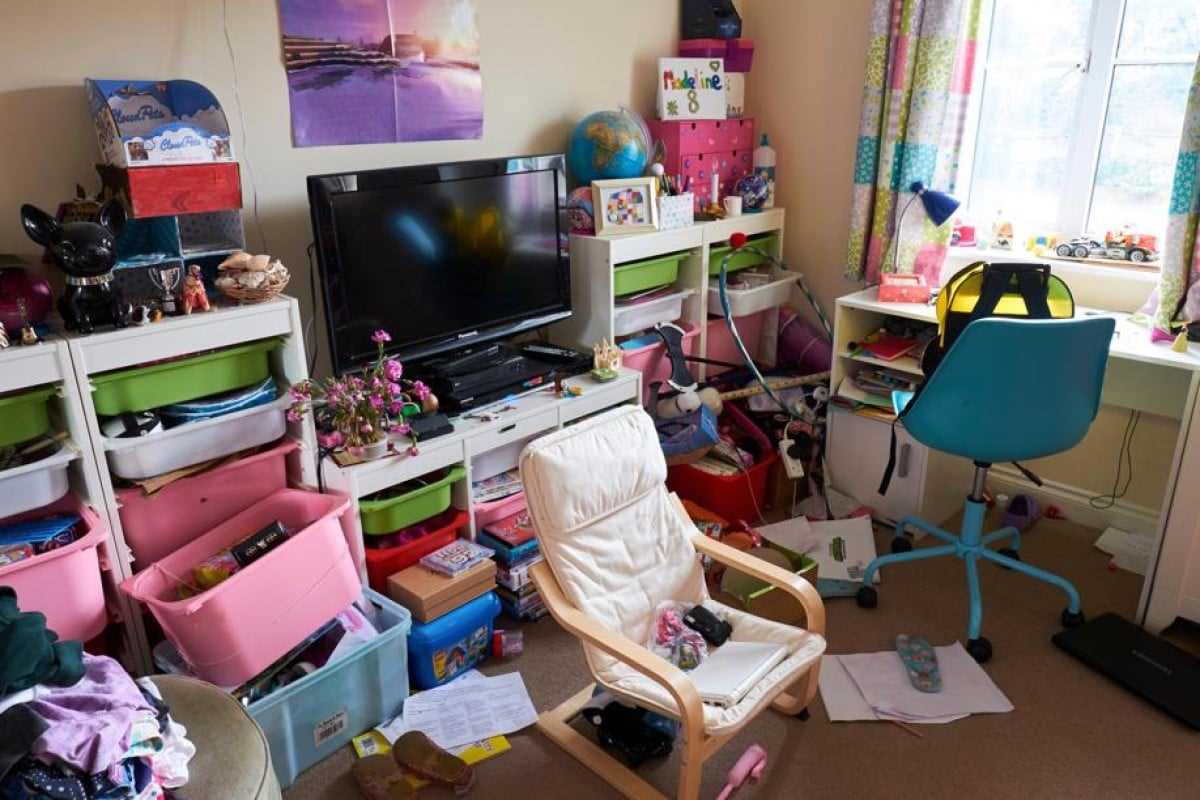
Living in a cluttered environment can also contribute to a loss of control, which is another common anxiety symptom. When there is clutter everywhere, it can feel overwhelming and chaotic. This lack of control over one’s environment can increase feelings of anxiety and can make it challenging to find peace and relaxation at home.
5. Impact on Sleep
Finally, clutter can also have a significant impact on sleep, which is a crucial aspect of maintaining mental well-being. A cluttered bedroom can create a distracting and uncomfortable sleep environment, making it difficult to fall asleep and stay asleep. Poor sleep quality can increase anxiety levels and make it challenging to cope with stress during the day.
In conclusion, clutter and anxiety are closely interconnected. A cluttered living space can contribute to increased stress levels, feelings of overwhelm, difficulty focusing, a sense of loss of control, and can even impact sleep quality. By decluttering and organizing living spaces, individuals can create a more calming and supportive environment for their mental well-being.
How Clutter Affects Stress Levels
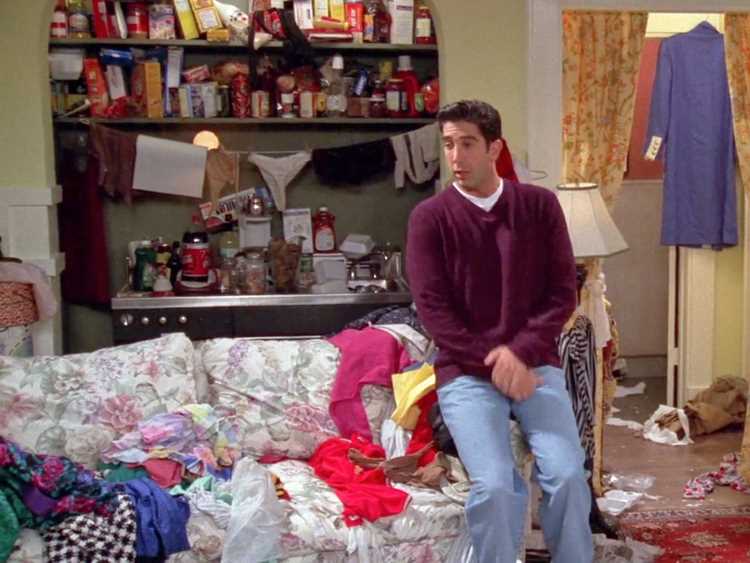
Clutter in our living spaces can have a significant impact on our stress levels. When our homes are filled with excess belongings, disorganized piles, and cluttered surfaces, it can create a sense of chaos and overwhelm. This environment can contribute to increased stress and anxiety, making it difficult to relax and find peace in our own homes.
1. Cognitive Overload:
Living in a cluttered environment can overwhelm our senses and lead to cognitive overload. Our brains are constantly processing the visual stimuli around us, and when there is an excess of visual clutter, it can be mentally exhausting. This cognitive overload can hinder our ability to focus, make decisions, and complete tasks efficiently, leading to increased stress levels.
2. Constant Reminder:
Clutter can act as a constant reminder of unfinished tasks, disorganization, and the need to clean and tidy up. This reminder can create a constant underlying stress, as our brains are subconsciously aware of the mess and chaos around us. The presence of clutter can also lead to feelings of guilt or shame, further exacerbating our stress levels.
3. Lack of Control:
Living in a cluttered environment can give us a sense of being overwhelmed and out of control. When our surroundings are chaotic and disorganized, it can be difficult to feel calm and in control of our lives. This lack of control can contribute to feelings of stress and anxiety.
4. Visual Distractions:
Visual clutter can be distracting and make it challenging to focus on tasks or relax. Our eyes are naturally drawn to objects and visual stimuli in our environment, and when there is clutter, our attention becomes divided. This constant distraction can prevent us from being fully present and engaged in the activities we want to focus on, leading to increased stress levels.
5. Difficulty Cleaning and Maintaining:
Living in a cluttered environment can make it challenging to clean and maintain our spaces. The physical task of cleaning can be overwhelming and time-consuming when there is excess clutter to deal with. This can contribute to a cycle of stress, as the clutter continues to build up and the task of cleaning becomes more daunting.
Overall, clutter can have a profound effect on our stress levels and overall mental well-being. By decluttering our living spaces and creating an organized and calm environment, we can reduce stress and create a more peaceful and relaxing home.
The Relationship Between Organized Spaces and Mental Well-being

The state of our physical environment can have a significant impact on our mental well-being. A cluttered and disorganized space can create feelings of stress, anxiety, and overwhelm. On the other hand, an organized and tidy space can promote a sense of calm, clarity, and overall mental well-being.
The Psychological Benefits of an Organized Space
- Reduced stress: When our surroundings are clean and organized, our minds are better able to focus and relax. The absence of clutter reduces visual distractions and can help to lower our stress levels.
- Increased productivity: An organized space makes it easier to find what we need, leading to increased productivity. When our surroundings are tidy, we waste less time searching for things, allowing us to focus on important tasks.
- Improved mental clarity: A cluttered environment can overwhelm our senses and make it difficult to think clearly. When we declutter and organize our space, we create a sense of order and promote mental clarity.
- Enhanced creativity: An organized space can stimulate creativity and inspire new ideas. When our surroundings are clean and free from distractions, we are more likely to feel inspired and motivated to engage in creative pursuits.
The Connection Between Organization and Mental Health
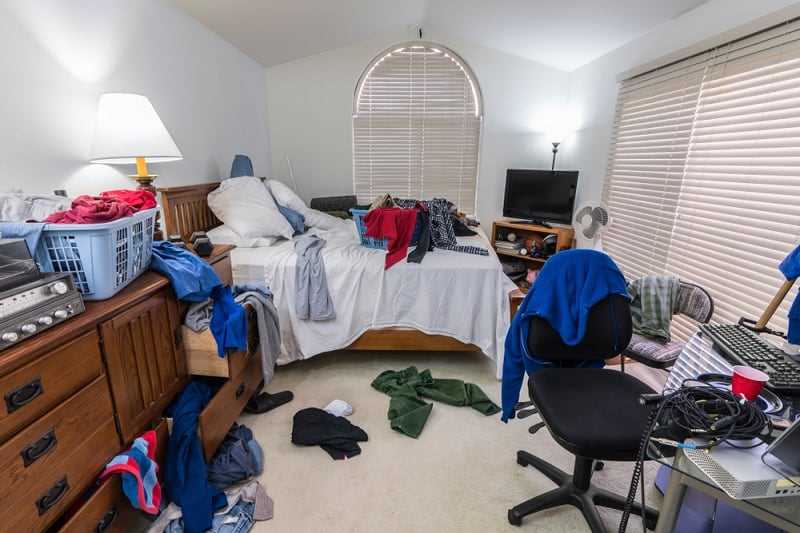
Research has shown that there is a direct relationship between the organization of our physical spaces and our mental health. Clutter has been linked to increased levels of cortisol, a stress hormone, which can have detrimental effects on our overall well-being over time.
Furthermore, living in a disorganized environment can contribute to feelings of guilt, shame, and embarrassment. It can also make it more difficult to engage in self-care activities, as the physical clutter may serve as a constant reminder of tasks left unfinished.
On the other hand, maintaining an organized space can promote a sense of self-efficacy and accomplishment. When we take the time to declutter and create an organized environment, we feel a sense of control over our surroundings, which can positively impact our mood and overall mental well-being.
Tips for Creating an Organized Space
Here are some tips to help you create and maintain an organized space:
- Start small: Begin decluttering and organizing one area at a time, rather than trying to tackle the entire space at once.
- Create systems: Develop efficient systems for organizing your belongings, such as labeling containers and creating designated spaces for different items.
- Regular maintenance: Set aside time each week or month to declutter and organize your space to prevent it from becoming overwhelmed with clutter again.
- Let go of what you don’t need: Be honest with yourself about what you truly need and use. Let go of items that no longer serve a purpose or bring you joy.
- Seek support if needed: If you struggle with maintaining an organized space, consider reaching out to a professional organizer or therapist for support and guidance.
By prioritizing the organization of our physical spaces, we can positively impact our mental well-being and create a more peaceful and enjoyable living environment.
FAQ
How does having a messy house affect mental health?
Having a messy house can contribute to feelings of overwhelm and stress, which can potentially lead to depression. Clutter can make it difficult to relax and focus, and it can also create feelings of guilt and shame. Additionally, living in a chaotic environment can make it harder to find things and stay organized, further adding to stress and anxiety.
Can clutter cause feelings of depression?
Yes, clutter can contribute to feelings of depression. Living in a messy environment can be overwhelming and create a constant sense of chaos and disarray. This can make it difficult to relax, unwind, and find peace of mind. It can also be a visual reminder of tasks left unfinished or responsibilities not met, which can lead to feelings of guilt and low self-esteem.
Is there a connection between a messy house and mental health?
Yes, there is a connection between a messy house and mental health. Research has shown that living in a cluttered environment can have a negative impact on mental well-being. It can increase stress levels, make it harder to relax, and contribute to feelings of overwhelm and anxiety. Decluttering and creating an organized living space can have a positive effect on mental health.
Can a messy living space lead to depression?
Yes, a messy living space can potentially lead to depression. Clutter and disorganization can create a constant source of stress and overwhelm, making it difficult to relax and find peace of mind. The visual reminder of unfinished tasks and responsibilities can also contribute to feelings of guilt and low self-worth. Taking steps to declutter and create an organized living space can help improve mental well-being.
What are the effects of living in a cluttered environment?
Living in a cluttered environment can have several negative effects on mental health. It can increase stress levels, make it difficult to focus and find things, create feelings of overwhelm and anxiety, and contribute to a constant sense of chaos. Clutter can also be a visual reminder of tasks left undone, which can lead to feelings of guilt and shame. Cleaning and organizing the living space can help alleviate these effects.
How does clutter impact mental well-being?
Clutter can have a negative impact on mental well-being. It can increase stress levels, make it harder to relax and focus, and contribute to feelings of overwhelm and anxiety. Living in a messy environment can also create a constant sense of chaos and disarray, which can be mentally draining. On the other hand, having an organized and clutter-free space can promote a sense of calm and improve mental well-being.
What can be done to improve mental health in a cluttered house?
To improve mental health in a cluttered house, the first step is to start decluttering and organizing the living space. This can be done gradually, starting with small areas and setting aside dedicated time for decluttering each day or week. Creating a system for organizing belongings and finding storage solutions can also help maintain an organized living space. Additionally, seeking support from a therapist or counselor can provide guidance and tools for managing stress and improving mental well-being.













